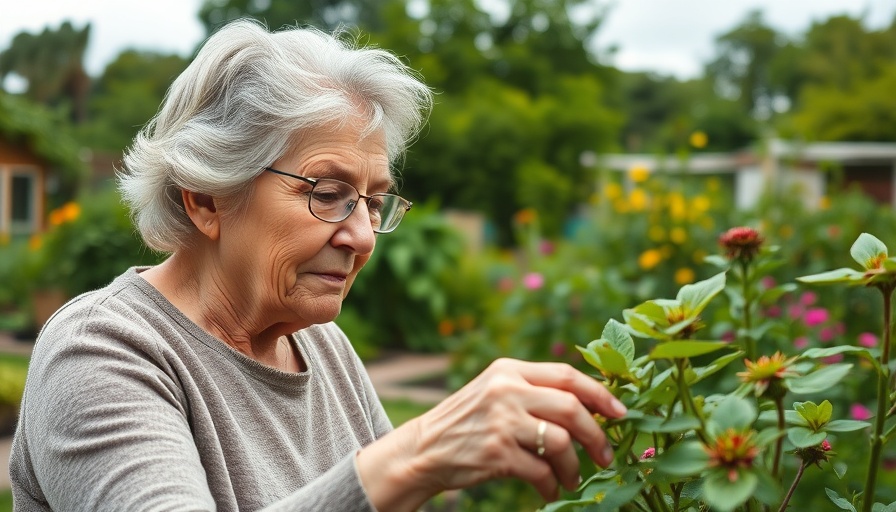
Exploring the Roots of Agriculture: Bonnetta Adeeb's Vision
Bonnetta Adeeb has emerged as a beacon of hope in the realm of sustainable agriculture, particularly for communities of color. At 74, this retired history teacher has successfully launched the Ujamaa Cooperative Farming Alliance (UCFA)—a model that intertwines agricultural practice with cultural preservation. Amidst the backdrop of COVID-19, Adeeb’s work has not just taken root; it has flourished, revealing a powerful connection between history, identity, and community.
The Genesis of Ujamaa: A Collective Response to Crisis
Ujamaa was born during an unprecedented time. As schools shut down, Adeeb seized the moment to engage with elders across the African diaspora, documenting their stories of heritage and agricultural practices lost over generations. Through these interviews, she identified culturally significant crops like American plums and collard greens—vegetables that have historically connected African Americans to their ancestral roots. “We are reclaiming a lost history,” she notes, emphasizing the importance of these narratives for future generations.
The Cultural Significance of Crops
Preserving these traditions goes beyond nostalgia; it is a practical strategy for resilience. Adeeb points out that during periods of enslavement, collard greens were one of the few crops African Americans could plant for themselves, making them symbolic of survival and autonomy. Adeeb's initiative ensures that these crops are not just historical references but living elements of cultural memory, essential for fostering self-sufficiency in communities that have often faced marginalization.
Building a Cooperative: One Community, One Vote
Ujamaa operates through a Zoom-based structure, allowing global participation from growers in places as varied as Botswana and Hawaii. By establishing working groups, members can engage based on their interests, fostering an inclusive environment where all voices are valued. “We are a complete collective—one person, one vote,” Adeeb emphasizes, highlighting the democratization of agricultural knowledge and practices.
Success Stories: Inspired Growth from the Ground Up
As UCFA evolves, it is already witnessing success stories that resonate with its mission. From members learning to cultivate traditional crops to sharing their understanding of nutrition and food security, the impact extends beyond agriculture into the health and social well-being of communities. “Even if the government shuts down all the food banks, we’re ready for that,” Adeeb states, showcasing a model built on sustainability and empowerment.
Future Trends in Community Agriculture
Adeeb’s work appears not only relevant but crucial in a world increasingly attuned to the significance of food justice and environmental sustainability. As more people seek to reconnect with their agricultural heritage, initiatives like UCFA stand at the forefront, providing needed resources and community support effectively. This trend illustrates a broader societal shift towards valuing local and culturally significant foods over mass-produced alternatives.
What You Can Do: Join the Movement
For those looking to make an impact, joining organizations that prioritize cultural heritage and sustainability, like the Ujamaa Cooperative Farming Alliance, is a step towards contributing to the movement. By participating, members not only link themselves with their heritage but also actively make strides in ensuring that future generations can benefit from the rich history of agricultural practices.
Bonnetta Adeeb’s vision teaches us that agriculture is not just about cultivating plants; it is about nurturing our connections to the past while paving the way for a resilient future. As we consider the implications of her work, we are reminded that in reclaiming our roots, we secure a healthier tomorrow for ourselves and future generations. Join the Ujamaa Cooperative Farming Alliance today—be part of a movement that sows the seeds of resilience and nutritional empowerment!
 Add Row
Add Row  Add
Add 




Write A Comment